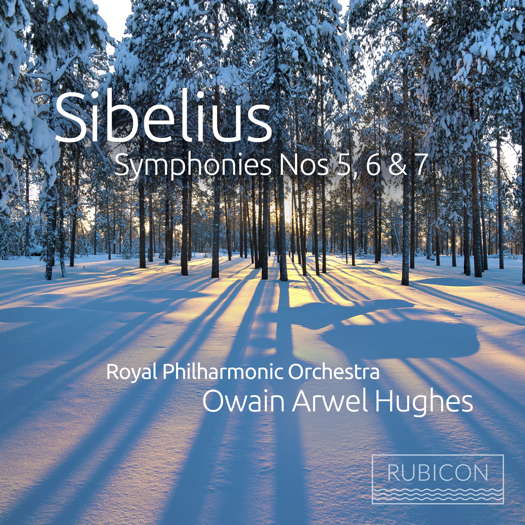 CENTRAL ENGLAND: Mike Wheeler's concert reviews from Nottingham and Derbyshire feature high profile artists on the UK circuit - often quite early on their tours.
CENTRAL ENGLAND: Mike Wheeler's concert reviews from Nottingham and Derbyshire feature high profile artists on the UK circuit - often quite early on their tours.
 DISCUSSION: What is a work? John Dante Prevedini leads a discussion about The performing artist as co-creator, including contributions from Halida Dinova, Yekaterina Lebedeva, Béla Hartmann, David Arditti and Stephen Francis Vasta.
DISCUSSION: What is a work? John Dante Prevedini leads a discussion about The performing artist as co-creator, including contributions from Halida Dinova, Yekaterina Lebedeva, Béla Hartmann, David Arditti and Stephen Francis Vasta.
 WORD SEARCH: Can you solve Allan Rae's classical music word search puzzles? We're currently publishing one per month.
WORD SEARCH: Can you solve Allan Rae's classical music word search puzzles? We're currently publishing one per month.

Symphonic Maturity
PATRICK MAXWELL listens to Sibelius symphonies
'... the wind and brass playing is pristine throughout.'
I'm never quite sure what conductors feel they are going to get out of yet one more recording of Sibelius' symphonies. They're certainly seat-filling, in their own modern-but-non-modernist way. The music often seems an idyll from the anguished outburst and despairing gulfs of the last centuries' first two decades. In that general freedom from extra-musical associations, there's plenty of open-ended freedom to interpret. Yet once we've heard their depths and possibilities of Sibelius' vast landscapes and confined emotions, it's easy to wonder, I think, what a new recording really would add except another listing on the discography.
Perhaps the answer lies in the idea of voice. Sibelius' voice does seem very individual - unpretentious, not vehement but still ever-present. Where Mahler said a symphony must be 'like the world - it must embrace everything', Sibelius' idea is less universal, maybe less dogmatic or self-aggrandising. 'I do not think of a symphony', he commented, having composed his Sixth, 'only as music in this or that number of bars, but rather as an expression of a spiritual creed, a phase in one's inner life'. This is borne out by the evidence of that work's composition: in the manuscript Sibelius wrote out the bars before he did the music, a decision which must be part of the timeless, ethereal lightness which characterises the piece.
Listen — Sibelius: Poco vivace (Symphony No 6 in D minor)
(RCD1073 track 6, 0:00-0:51) ℗ 2022 Rubicon Classics Ltd :
Owain Arwel Hughes had certainly brought out the lightness and piquancy in this music through his new recording with the Royal Philharmonic Orchestra of the last three symphonies. The mountain-face that opens the Fifth unfolds into view with a true vastness, although more definition in string playing which accompanies the brass outburst was needed in balancing the confident statements with the underlying movement.
Listen — Sibelius: Tempo molto moderato (Symphony No 5 in E flat)
(RCD1073 track 1, 2:00-3:09) ℗ 2022 Rubicon Classics Ltd :
Sibelius' symphonies are remarkably short affairs, with his last, the seventh, taking somewhere around twenty minutes. His divergence from the modernists was in conception as well as style - Mahler, Schoenberg and Strauss were all finishing their massive orchestral firework-pieces (the Symphony for a Thousand, Gurre-Lieder and the Alpine Symphony) - around this same time the Finnish master opted to turn back to the lushness of mid-Romantic ease. Maybe it's a reason for his continued commercial success, but it also means that one can come out of a Sibelius symphony wondering just quite what it was all about in the way that you can't with Bruckner. Finlandia, a work purposefully layered with meaning, can make parts of his work like the second movement of the Fifth, seem like trivial asides.
Listen — Sibelius: Andante mosso, quasi allegretto (Symphony No 5 in E flat)
(RCD1073 track 2, 0:00-0:57) ℗ 2022 Rubicon Classics Ltd :
If it's true that listeners retreat to Sibelius to get away from the confusedly over-intellectualised experiences of Mahler, Stravinsky and Schoenberg, then it's still not clear what they are retreating to. Sibelius' trips through the wintry Finnish mornings often seem little more than excursions.
Not that the Royal Philharmonic does not add some interest along the way: string passages are treated with a wholly merited indulgence, and the wind and brass playing is pristine throughout. The delicately expectant third movement of the Fifth and the opening of the Sixth are played with an attention to detail which vividly portrays their different attitudes.
Listen — Sibelius: Allegro molto moderato (Symphony No 6 in D minor)
(RCD1073 track 4, 0:00-1:00) ℗ 2022 Rubicon Classics Ltd :
For an overview of Sibelius' symphonic maturity and total grasp of orchestral effects, this recording is a full and excellently communicated disc. It still leaves me, though, in doubtful silence as to what Sibelius' real motives were in writing these colourful, large-lensed but never truly profound works. And why did he stop writing them at all for so long? That sense of timelessness, of infinitude and lightness, is perhaps his greatest asset, and something most clearly articulated in the symphonies' very brevity, the works implicating that nothing would change the geographic vastness they conjure up.
Listen — Sibelius: Vivace - Presto - Adagio (Symphony No 7 in C)
(RCD1073 track 11, 4:03-4:45) ℗ 2022 Rubicon Classics Ltd :
Technical mastery Sibelius might show, but never, even in the best rendition, does his music say much more than a conventional music exploration can, at least while so little burdened by the passing of time.
Copyright © 11 September 2022
Patrick Maxwell,
Buckinghamshire, UK

CD INFORMATION - SIBELIUS: SYMPHONIES 5, 6 AND 7
ARTICLES ABOUT THE ROYAL PHILHARMONIC ORCHESTRA
CLASSICAL MUSIC ARTICLES ABOUT FINLAND


